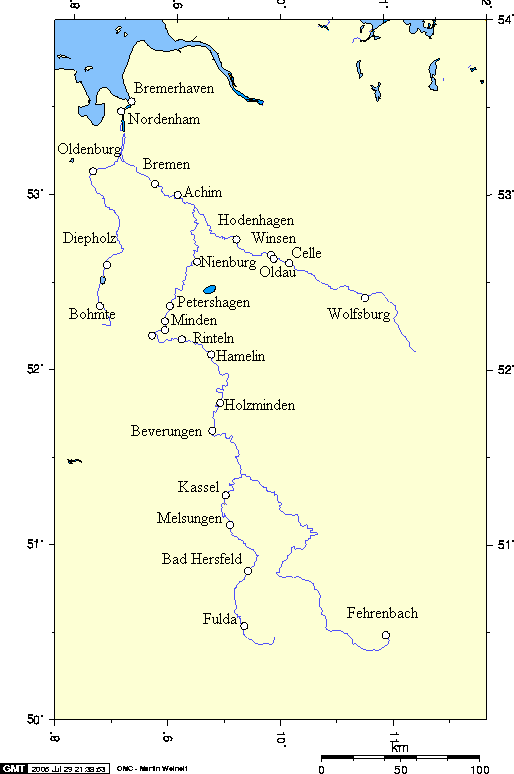|
Heinrich Blume
Heinrich Blume (born 25 January 1887 in Hameln Hamelin ( ; german: Hameln ) is a town on the river Weser in Lower Saxony, Germany. It is the capital of the district of Hamelin-Pyrmont and has a population of roughly 57,000. Hamelin is best known for the tale of the Pied Piper of Hamelin. Hi ...; died 26 July 1964 in Hannover) was a German teacher and an anti-semitic member of the Nazi Party (NSDAP) which he joined in the 1920s. References 20th-century German educators Nazi Party politicians 1887 births 1964 deaths Members of the Reichstag of the Weimar Republic National Socialist Freedom Movement politicians {{Germany-Nazi-politician-stub ... [...More Info...] [...Related Items...] OR: [Wikipedia] [Google] [Baidu] |
Hameln
Hamelin ( ; german: Hameln ) is a town on the river Weser in Lower Saxony, Germany. It is the capital of the district of Hamelin-Pyrmont and has a population of roughly 57,000. Hamelin is best known for the tale of the Pied Piper of Hamelin. History Hamelin started with a monastery, which was founded as early as 851 AD. A village grew in the neighbourhood and had become a town by the 12th century. The incident with the "Pied Piper" (see below) is said to have happened in 1284 and may be based on a true event, although somewhat different from the tale. In the 15th and 16th centuries Hamelin was a minor member of the Hanseatic League. In June 1634, during the Thirty Years' War, Lothar Dietrich, Freiherr of Bönninghausen, a General with the Imperial Army (Holy Roman Empire), Imperial Army, lost the Battle of Oldendorf to the Swedish Dodo zu Innhausen und Knyphausen, General Kniphausen, after Hamelin had been besieged by the Swedish army. The era of the town's greatest prosperity ... [...More Info...] [...Related Items...] OR: [Wikipedia] [Google] [Baidu] |
Hannover
Hanover (; german: Hannover ; nds, Hannober) is the capital and largest city of the German States of Germany, state of Lower Saxony. Its 535,932 (2021) inhabitants make it the List of cities in Germany by population, 13th-largest city in Germany as well as the fourth-largest city in Northern Germany after Berlin, Hamburg and Bremen. Hanover's urban area comprises the towns of Garbsen, Langenhagen and Laatzen and has a population of about 791,000 (2018). The Hanover Region has approximately 1.16 million inhabitants (2019). The city lies at the confluence of the River Leine and its tributary the Ihme, in the south of the North German Plain, and is the largest city in the Hannover–Braunschweig–Göttingen–Wolfsburg Metropolitan Region. It is the fifth-largest city in the Low German dialect area after Hamburg, Dortmund, Essen and Bremen. Before it became the capital of Lower Saxony in 1946, Hannover was the capital of the Principality of Calenberg (1636–1692), the Electorat ... [...More Info...] [...Related Items...] OR: [Wikipedia] [Google] [Baidu] |
Nazi Party
The Nazi Party, officially the National Socialist German Workers' Party (german: Nationalsozialistische Deutsche Arbeiterpartei or NSDAP), was a far-right politics, far-right political party in Germany active between 1920 and 1945 that created and supported the ideology of Nazism. Its precursor, the German Workers' Party (; DAP), existed from 1919 to 1920. The Nazi Party emerged from the Extremism, extremist German nationalism, German nationalist, racism, racist and populism, populist paramilitary culture, which fought against the communism, communist uprisings in post–World War I Germany. The party was created to draw workers away from communism and into nationalism. Initially, Nazi political strategy focused on anti–big business, anti-bourgeoisie, bourgeois, and anti-capitalism, anti-capitalist rhetoric. This was later downplayed to gain the support of business leaders, and in the 1930s, the party's main focus shifted to Antisemitism, antisemitic and Criticism of ... [...More Info...] [...Related Items...] OR: [Wikipedia] [Google] [Baidu] |
Nazi Party Politicians
Nazism ( ; german: Nazismus), the common name in English for National Socialism (german: Nationalsozialismus, ), is the far-right totalitarian political ideology and practices associated with Adolf Hitler and the Nazi Party (NSDAP) in Nazi Germany. During Hitler's rise to power in 1930s Europe, it was frequently referred to as Hitlerism (german: Hitlerfaschismus). The later related term " neo-Nazism" is applied to other far-right groups with similar ideas which formed after the Second World War. Nazism is a form of fascism, with disdain for liberal democracy and the parliamentary system. It incorporates a dictatorship, fervent antisemitism, anti-communism, scientific racism, and the use of eugenics into its creed. Its extreme nationalism originated in pan-Germanism and the ethno-nationalist '' Völkisch'' movement which had been a prominent aspect of German nationalism since the late 19th century, and it was strongly influenced by the paramilitary groups that emerged ... [...More Info...] [...Related Items...] OR: [Wikipedia] [Google] [Baidu] |

.jpg)